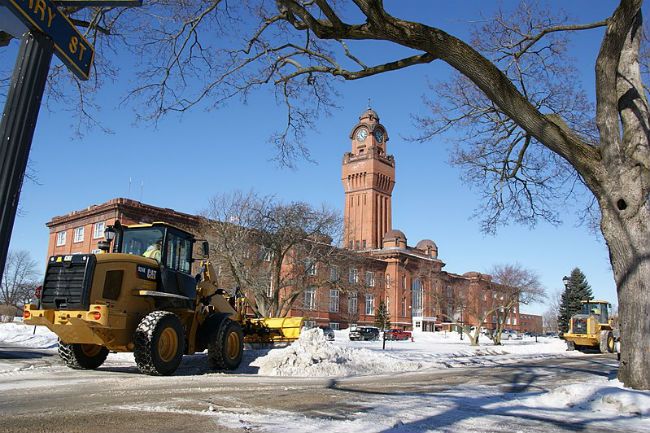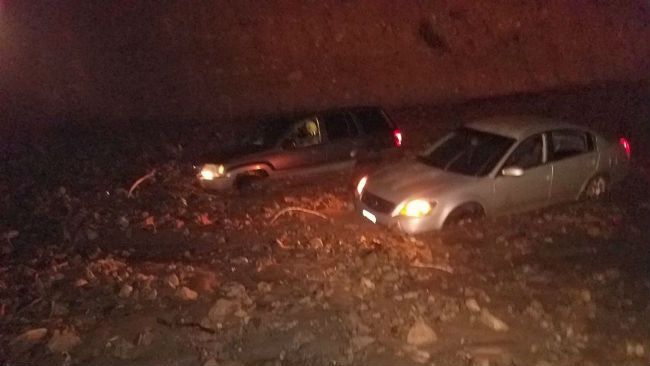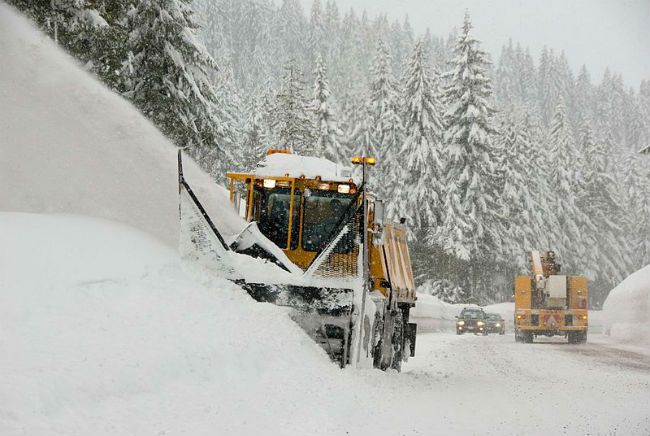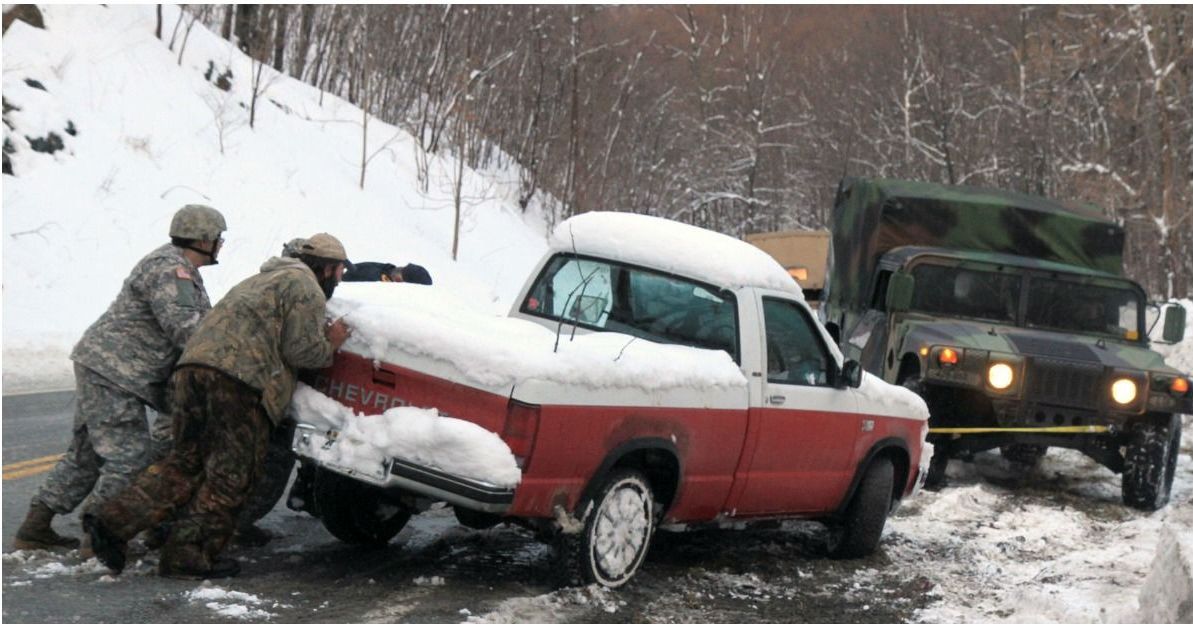After a wet and dreary Christmas, it seems winter weather is finally arriving in the new year - but it may prove to be too much of a good thing.
No matter where you live, prepare for major storms this week, as they're predicted to hit both coasts and send several days traveling across the country.
Ice And Snow To The East

In the East, the year's first big snow storm could bring true winter weather and cold Arctic air through the Great Lakes to the Atlantic.
Before moving east, the storm is expected to dump up to six inches of snow over Missouri, Kentucky, Illinois, Indiana, and Ohio as the weekend begins on Friday.
Then, the same pattern should bring more snow to Virginia and and the Carolinas. While meteorologists predict the storm should begin to weaken by then, a matching storm is predicted to swing up from the Gulf Of Mexico at the same time.
A cold shot may last long enough for a weekend storm to unload snow & a wintry mix across portions of the Ohio Valley, South and Northeast: https://t.co/EE5iLjyYF5 pic.twitter.com/J2LuQAZ2m3
— AccuWeather (@breakingweather) January 7, 2019
Both the storms will bring "spotty snow and ice," according to AccuWeather, but they also have the potential to combine and create more serious winter conditions, dropping "a swath of heavy snow and ice" on New England.
In the worst case, the winter storm could blanket the coast in a foot of snow, disrupting travel plans and flights. The cold air will also drop temperatures in the storm's path, meaning roads could get icy and slippery.
But it's still unclear if or when the storm will strike, if it arrives at all. So far, the worst of the weather to the East seems like it will hit Sunday or Monday.
Wet Weather To The West

After windy weather and mudslides hit the West Coast last weekend, accompanied by rain, snow, and road closures, it seems there won't be a reprieve from the bad weather.
More rain is predicted to hit Northern California this week, as the storm travels north into Oregon through next Wednesday.
Reporters are already warning to expect flooded roadways and a greater risk of mudslides during the storm, especially in regions affected by last year's wildfires.
Even outside the rainy corridor, strong winds will hit the coast and could even topple trees or power lines, now that the ground has been soaked by the last storm.

In mountainous areas, the storm will bring snow, not rain, and colder conditions mean even parts of the Northwest could see powder this week.
The storm is expected to arrive late Thursday or Friday, but could last for days as more rain and snow arrives during the weekend.
[H/T: AccuWeather]

